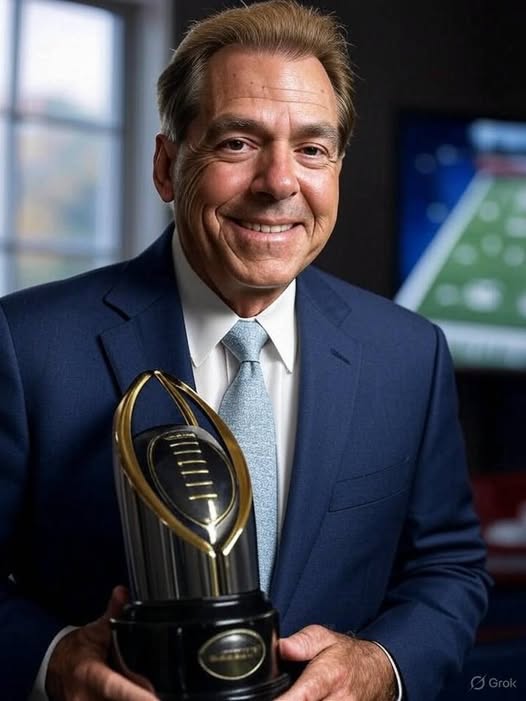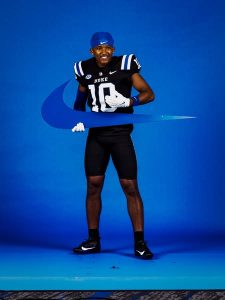
In the rich, storied annals of college football history, few names evoke the reverence and awe inspired by Nick Saban. The former Alabama Crimson Tide head coach, now enjoying retirement as a legend of the sport, didn’t just build a dynasty — he redefined one. To speak of Saban is to speak of a transformative figure who elevated a program, reshaped a conference, and in many ways, altered the very DNA of how championship football is constructed. As the dust settles on his remarkable career, his unrivaled legacy stands as a benchmark against which all future greatness will be measured.
A Legacy Rooted in Relentless Pursuit
Nick Saban’s coaching career began humbly, bouncing around as an assistant with stints at Kent State, Syracuse, West Virginia, and eventually in the NFL with the Houston Oilers. But it was at Michigan State, LSU, and finally Alabama where the seeds of his greatness fully bloomed. Over 28 seasons as a head coach, Saban compiled a staggering 292-71-1 career record, including seven national championships—six of them at Alabama. That number alone sets him apart; no other coach in the modern era, including Bear Bryant or Urban Meyer, has won more.
What defined Saban wasn’t just his ability to win — it was his ability to sustain winning in an era that discouraged dynasties. With the proliferation of scholarship limits, the transfer portal, and the NIL (Name, Image, Likeness) revolution, maintaining dominance became nearly impossible. Yet Saban adapted, evolved, and even thrived. From the old-school ground-and-pound philosophy of his early years to the high-octane spread offenses he embraced later, Saban showed an uncanny ability to not only survive changes in the game but use them to his advantage.
The Alabama Standard
When Saban arrived in Tuscaloosa in 2007, Alabama was a storied program lost in the wilderness. The Tide had endured mediocrity, NCAA sanctions, and coaching instability. But Saban wasted no time reestablishing Alabama as the crown jewel of college football. His “Process” — a relentless, detail-oriented approach to discipline, player development, and preparation — became the bedrock of the Alabama football culture.
Between 2009 and 2020, Saban led Alabama to six national championships, and in four of those seasons, his teams went undefeated. His rosters were a Who’s Who of NFL-bound talent: Julio Jones, Derrick Henry, Tua Tagovailoa, Mac Jones, DeVonta Smith, and Will Anderson Jr. — just to name a few. In fact, under Saban, Alabama produced more than 40 first-round NFL Draft picks, a testament to both his recruiting prowess and his ability to develop raw talent into elite performers.
But perhaps most impressively, Saban achieved this dominance with different coordinators, different quarterbacks, and across vastly different eras of college football. He wasn’t married to a system — he was married to results.
Recruiting Excellence
The engine behind Saban’s dynasty was his uncanny recruiting ability. The man could walk into any living room in America and convince a 5-star athlete not only to come to Alabama, but to embrace competition in a crowded room of future NFL stars. Alabama ranked No. 1 in the national recruiting rankings 10 times during Saban’s tenure, including a run of eight consecutive top-2 classes from 2011 to 2018.
He didn’t just sell the program — he sold the Process. Recruits didn’t merely join a football team; they joined a machine, where every rep, meeting, and film session was part of a broader plan to mold them into pros. And he delivered — over 120 players coached by Saban have been drafted into the NFL.
Innovator in the Face of Change
One of the most underappreciated aspects of Saban’s greatness was his ability to adapt. After years of leaning on dominant defenses and pro-style offenses, the 2014 loss to an up-tempo Ole Miss squad opened his eyes to the direction of the sport. Instead of digging in, Saban pivoted. He hired Lane Kiffin — a bold, polarizing offensive mind — and unleashed a new era of spread offense in Tuscaloosa. Alabama’s offensive revolution eventually led to record-breaking performances, Heisman Trophy winners, and the nation’s most balanced juggernaut.
Then came the transfer portal and NIL era, a time many believed would dismantle college football’s traditional powers. Again, Saban stayed ahead. He learned to re-recruit his own players, navigated complex NIL waters, and tapped the portal for plug-and-play talent like Jameson Williams, Jahmyr Gibbs, and Henry To’oTo’o.
The SEC Arms Race
It’s no exaggeration to say that Saban’s success forced the rest of the SEC — and, frankly, all of college football — to level up. Programs like Georgia, Texas A&M, and LSU began pouring hundreds of millions of dollars into facilities, staff, and recruiting. Coaching salaries skyrocketed. Defensive backs began training with private coaches as early as middle school to meet the “Alabama standard.” Even the College Football Playoff system, introduced in 2014, was in part a response to the dominance of the SEC under Saban’s watch.
Saban didn’t just win — he transformed the competitive landscape. Georgia’s national titles under Kirby Smart, a Saban protégé, were built using the same blueprint. Dozens of his former assistants, including Jimbo Fisher, Lane Kiffin, Steve Sarkisian, and Mel Tucker, ascended to head coaching roles, further spreading the Saban ideology.
Off the Field: Discipline and Development
Beyond championships and draft picks, Saban’s real gift was developing men. He saw football as a vehicle to teach life lessons — discipline, accountability, mental toughness, and preparation. He held his players to impossible standards because he believed that anything less cheated them out of future success.
Saban’s mentorship of players like Tua Tagovailoa, who overcame injuries and doubters to become an NFL starter, or Jalen Hurts, who transferred and succeeded elsewhere after handling a benching with grace and maturity, is evidence of his developmental philosophy. His players respected him, feared him a little, but mostly trusted him. And that trust created a culture of internal leadership — the truest hallmark of a Saban team.
Retirement and Beyond
When Saban announced his retirement in January 2024, it sent shockwaves through the college football world. His departure marked the end of an era. But even in retirement, his influence looms large. He joined ESPN as a studio analyst, bringing his vast knowledge and candid insight to fans nationwide. Yet few believe his presence in college football will ever truly fade.
Many predict that in time, Saban will serve in an advisory role within the NCAA or a major athletic department, helping steer policy decisions in the ever-evolving NIL landscape. Others suggest he may help shape future Playoff formats or enforcement regulations. One thing is certain: Nick Saban’s voice will always matter.
Measuring the GOAT
In the end, the debate over the greatest college football coach ever feels settled. Bear Bryant may have laid the foundation. Urban Meyer had peak dominance. Dabo Swinney had Clemson’s golden run. But no one combined longevity, innovation, talent development, and national success like Nick Saban. He was the architect, the engineer, the foreman, and the builder of the sport’s most formidable empire.
His resume doesn’t just speak for itself — it shouts across generations. Seven national championships. Multiple undefeated seasons. More first-round NFL picks than some entire conferences. And he accomplished all of it without a hint of scandal or NCAA violations, maintaining integrity while running one of the most high-pressure operations in sports.
The Blueprint for Greatness
Nick Saban leaves behind more than rings, banners, or trophies. He leaves behind a blueprint. A way of building, maintaining, and evolving a program. He proved that the Process — with all its grind, discipline, and relentless commitment — works.
Future coaches will study his methods. Players will reference him in interviews. Recruits will grow up hearing his name. And for fans, especially those in Tuscaloosa, he will always be more than a coach — he will be a legend, a leader, and the embodiment of the Crimson Tide’s golden age.




